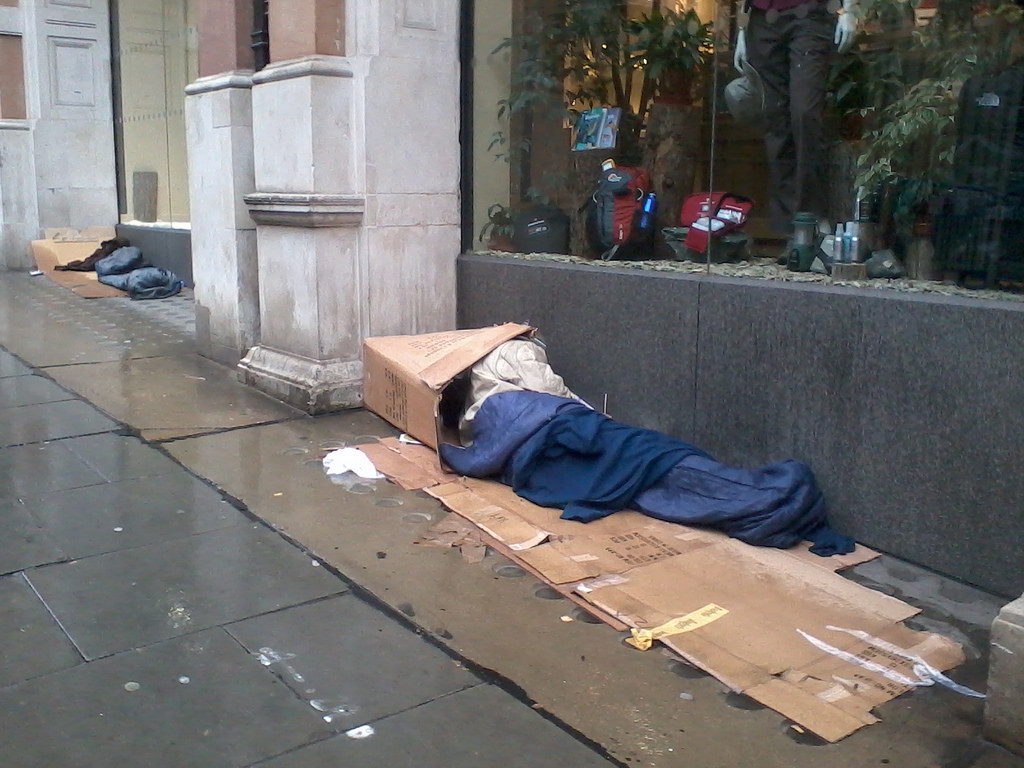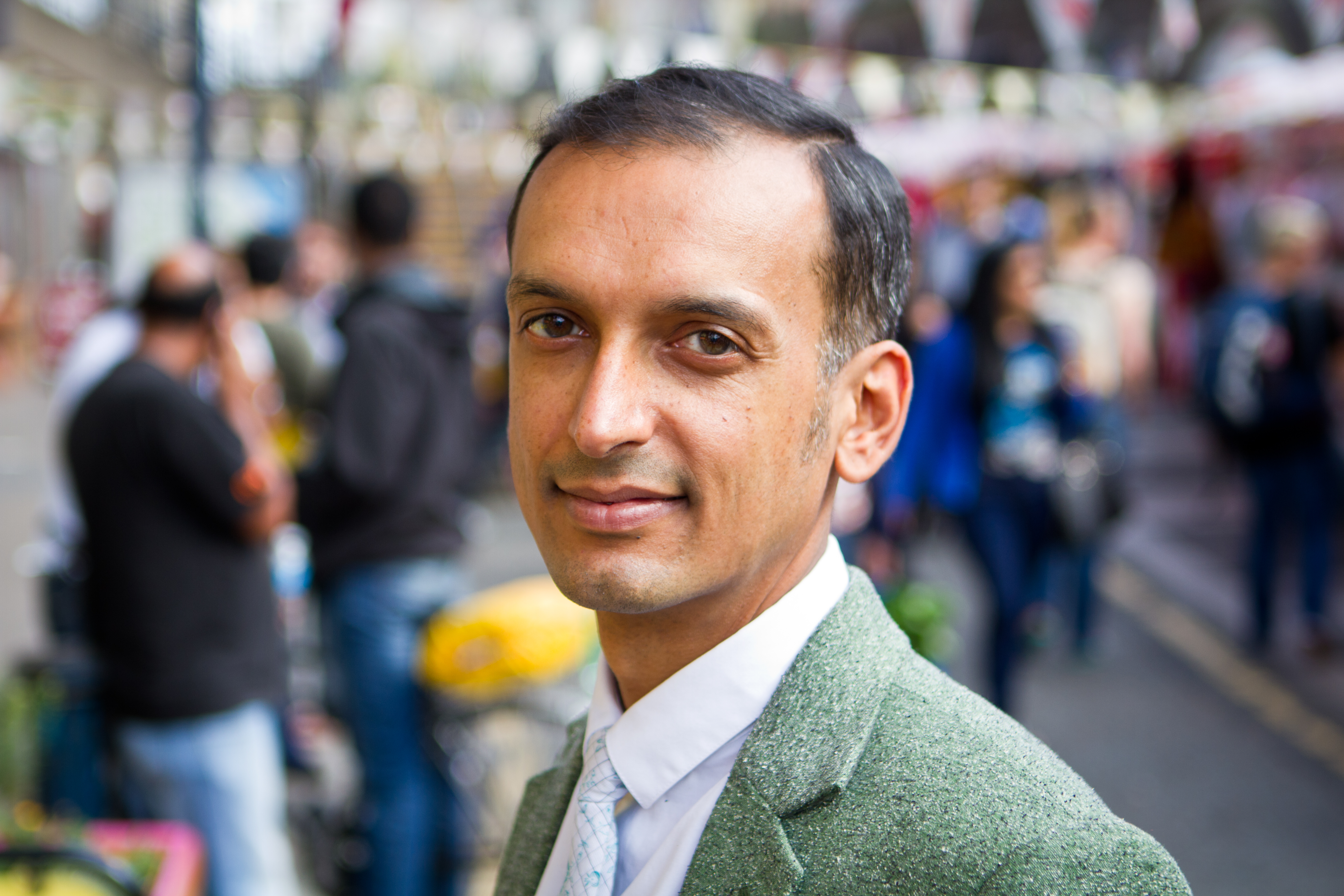New government figures revealing that 597 homeless people died in England and Wales during 2017 have been described as a ‘national scandal’ and ‘entirely preventable’ by homeless charities.
The Office of National Statistics has published new data, ‘Deaths of Homeless People in England and Wales 2013 to 2017,’ showing that 597 homeless people died in England and Wales in 2017 – an increase of 24 per cent over five years.
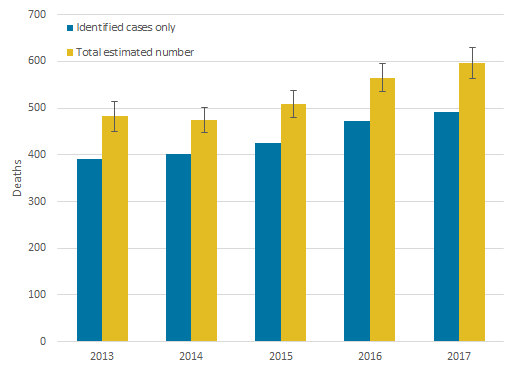
Deaths of homeless people in England and Wales registered in 2013 to 2017 Credit: ONS
The statistics highlight that more than four in five of these deaths (84 per cent) are men and the average age of homeless people who have died between 2013 and 2017 is 44 for men and 42 for women. In 2017, among the general population of England and Wales, the average age at death is 76 for men and 81 for women.
The average age of homeless people who have died between 2013 and 2017 is 44 for men and 42 for women.
The data also shows that London and the North West are the two places with the highest number of homeless deaths, with 136 homeless deaths in the capital and 119 in the North West. Wales recorded the lowest number of deaths, 13, of any region.
Homelessness Charities: It’s a ‘National Scandal’ and ‘Tragedy’
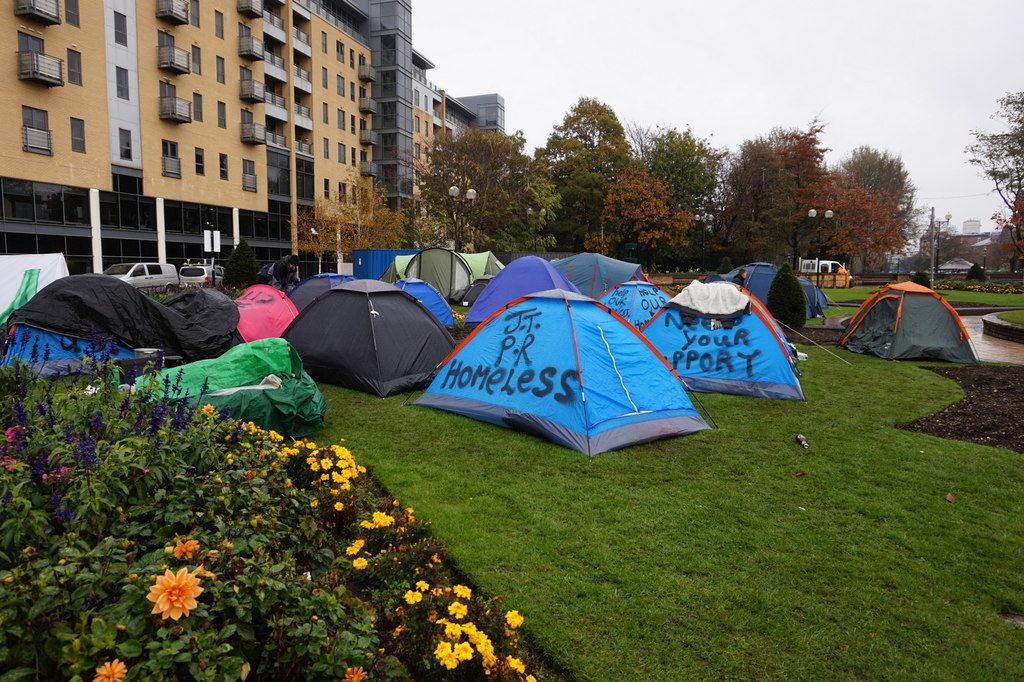 Credit: Ian S | Geograph
Credit: Ian S | Geograph
Homelessness charities have described the figures as ‘shocking’, a ‘national scandal’ and a ‘national tragedy.’ The charities are urging the government to take decisive action on rough sleeping and stop ‘entirely preventable’ deaths.
Howard Sinclair, Chief Executive of St Mungo’s, said: “The ONS report is further confirmation of what we have long known and feared – that the number of people dying while homeless is nothing short of a national scandal.
Many of these deaths are premature and entirely preventable.
Howard Sinclair, St Mungo’s
“These numbers are shocking. People are not just stuck sleeping on the streets, they are dying on the streets. Worse still many of these deaths are premature and entirely preventable. The statistics do not do justice to the individuals who have died. Their stories must be told and lessons learned.”
St Mungo’s wants the government to build more social housing and make it available to rough sleepers, improve private renting and provide long-term funding for homelessness charities.
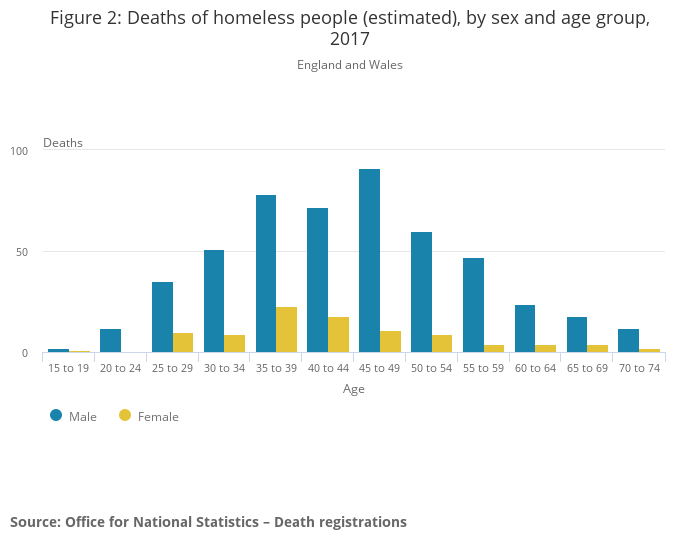
Crisis Chief Executive, Jon Sparkes, said: “It’s shocking to think that hundreds of people faced the last days of their lives without the dignity of a secure roof over their head. This is nothing short of a national tragedy – especially when we know that homelessness is not inevitable.
Behind these statistics are human beings – mothers, fathers, daughters and sons – whose families will now be spending Christmas coming to terms with their loss.
Jon Sparkes, Crisis
“In one of the world’s wealthiest countries, no one should be dying because of homelessness. It’s imperative that governments act now to stop this tragedy once and for all. Behind these statistics are human beings – mothers, fathers, daughters and sons – whose families will now be spending Christmas coming to terms with their loss. This has to change.”
Crisis believes that the lack of social housing needs to be urgently addressed and that the welfare system should be supporting people experiencing difficulties with housing and homelessness. The charity also argues that support services should be in place to assist people who have complex problems and issues.
Caroline Lucas MP described the figures as an ‘absolute scandal,‘ and Mayor of London, Sadiq Khan, said: “It’s a disgrace that people are dying as a result of homelessness in our country.”
James Brokenshire MP: ‘We Have a Moral Duty to Act’
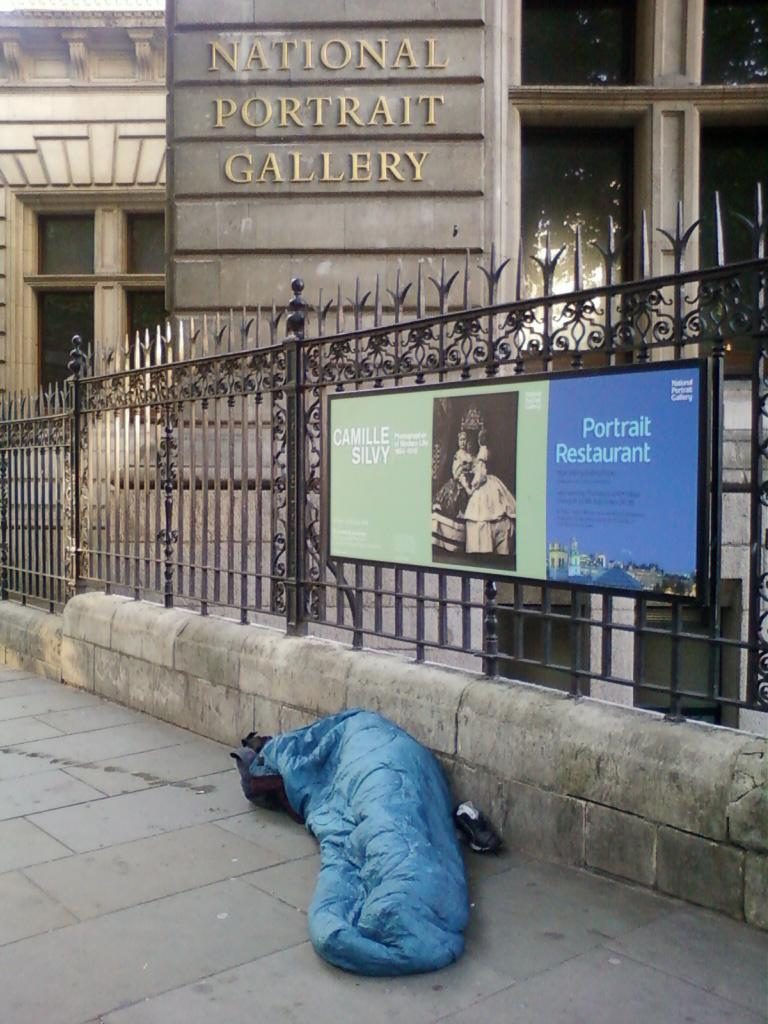 Image credit: Blodeuwedd | Flickr
Image credit: Blodeuwedd | Flickr
Addressing the House of Commons, Housing, Communities and Local Government Secretary, James Brokenshire MP, described the figures as ‘stark’ and said: “It is simply unacceptable to see lives cut short this way, I believe we have a moral duty to act. This government is committed to halving rough sleeping by 2022 and ending it by 2027.”
In August, the government committed £100 million to halving rough sleeping by 2022 and ending it completely by 2027, as part of its dedicated ‘rough sleeping strategy.’
However, campaigners believe that this is not enough money to address a growing problem. Last month, figures from the housing charity Shelter indicated that 320,000 people in Britain have been recorded as homeless, a rise of 13,000 since 2017.
The figures suggest that one in 200 people in Britain are homeless and, due to the yearly increase, more than 1,000 people have become homeless every month and are at risk of sleeping rough.
In England, homelessness is up 60 per cent since 2010, rough sleeping is up 134 per cent.
Philip Alston, UN Special Rapporteur on Extreme Poverty and Human Rights
In November, the UN special rapporteur on extreme poverty and human rights, Philip Alston, highlighted a shocking jump in homelessness, as well as a shortage of affordable social housing.
“In England, homelessness is up 60 per cent since 2010, rough sleeping is up 134 per cent. There are 1.2 million people on the social housing waiting list, but less than 6,000 homes were built last year.”
First Official Estimates on Homeless Deaths in England and Wales
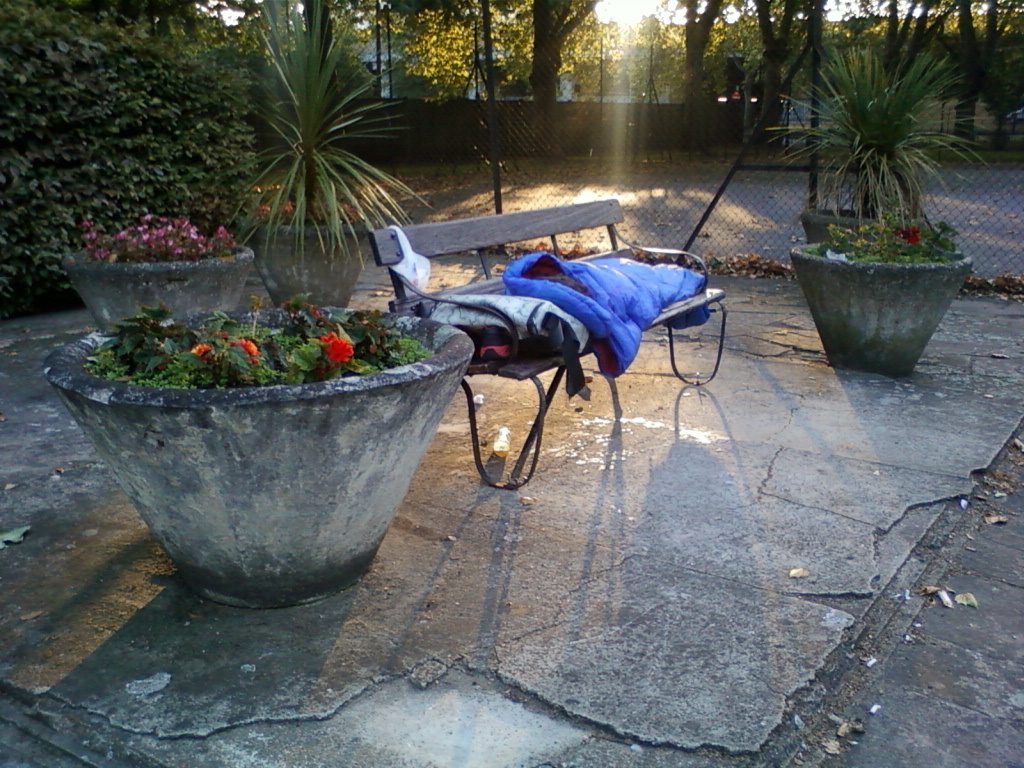 Credit: Blodeuwedd | Flickr
Credit: Blodeuwedd | Flickr
The ONS figures are the first official estimates on homeless deaths in England and Wales and play a vital role in addressing and understanding the issue of homelessness and rough sleeping.
Ben Humberstone, the statistician behind the ONS figures, said: “Every year hundreds of people die while homeless. These are some of the most vulnerable members of our society so it was vital that we produced estimates of sufficient quality to properly shine a light on this critical issue.”
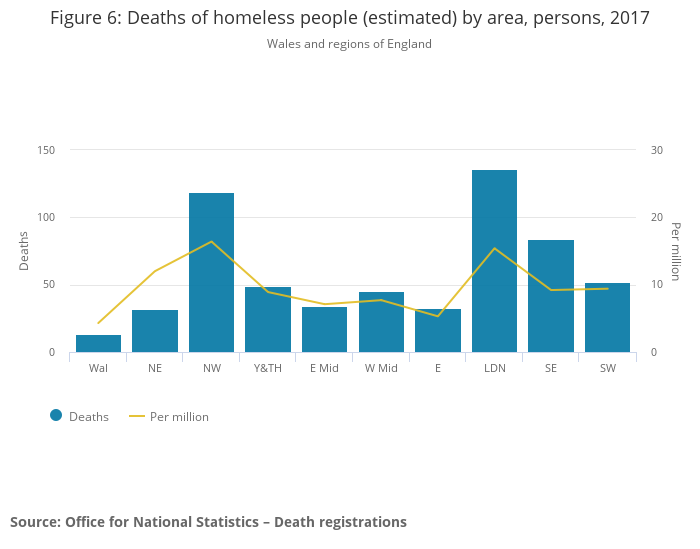
“Our findings show a pattern of deaths among homeless people that is strikingly different from the general population. For example, homeless people tend to die younger and from different causes. The average age of death last year was 44 years, with 84 per cent of all deaths being men. More than half were related to drug poisoning, suicide, or alcohol, causes that made up only 3 per cent of overall deaths last year.”
Featured image: Rough sleepers in London
Featured image credit: Blodeuwedd | Flickr

